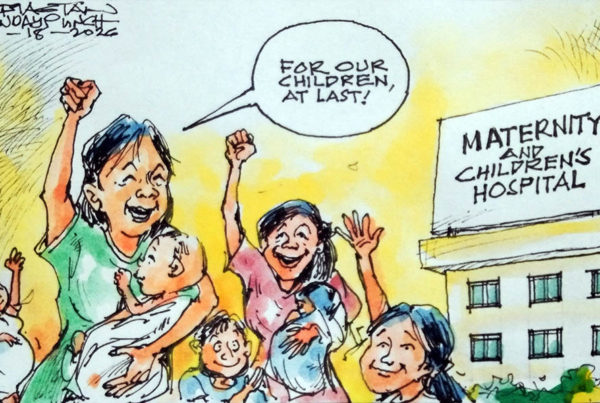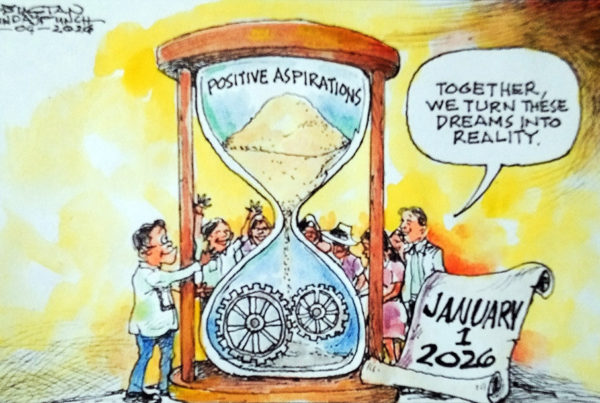Editorial
The local scene
While trouble brewed in the capital Metro Manila last week, all seemed pretty well around these parts.
The halls of the Senate echoed with questions and answers in a probe for such an elusive but obvious truth of how deep and brazen corruption is in government. The corridors of the House of Representatives also buzzed with the bitter aftermath of the ouster of Rep. Jose de Venecia Jr. as Speaker and its repercussions to the political dynamics in the lower house. Meanwhile, festive and romantic music filled the Pangasinan air.
While an outcry for moral ascendancy plagued top and senior officials in national government, there was much to commend about our local officials hereabout.
Sto. Tomas — an archetype of an old, small, sleepy and practically unknown town — for example, found space and time in national print and broadcast news with the celebration of their first Corn Festival, which coincided with the municipality’s centennial year, highlighted by their determined attempt to find a spot in the Guinness Book of World Records for the longest barbecue. Both local officials, headed by Mayor Vivien Villar, and the townsfolk deserve praise for their concerted effort.
Over at the western coast, Alaminos City carried on with its now traditional Valentine’s Day sunset mass wedding at the Lucap Wharf which overlooks the scenic Hundred Islands Park. The goal here is two-fold, according to Mayor Hernani Braganza: strengthen the family as the fundamental unit of society and promote their premier tourist site, which Braganza’s administration saved from almost certain ruin.
Not as grand but equally worthy of recognition is Sta. Barbara’s tractor project for its farmers who previously had to go to neighboring provinces to rent this basic farm equipment. Mayor Reynaldo Velasquez, himself a self-proclaimed farmer, understands that every peso saved in terms of production cost is valuable, especially to marginalized farmers.
What we see here are imaginative, innovative, and politically-determined local leaders who dare to cook up and, more importantly, deliver new ideas that benefit the community in tangible ways. These are the kind of leaders that our country so desperately needs.
Now, perhaps more than ever in the Philippine’s recent history, we are seeing within the context of Pangasinan the value and wisdom of a decentralized form of government.
Things may turn haywire in the political center of the country, but out in the countryside, in all appearances life goes on, and a promising life that is.
Unfortunately for us, however, the impact of the crisis in national leadership will soon spill over and all that may soon become meaningless.










